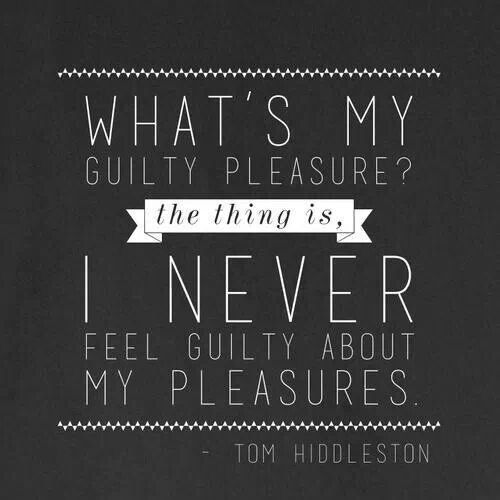|
by Smita Ganguli “For many years, until I wrote my first book, The Mechanical Bride, I adopted an extremely moralistic approach to all environmental technology. I loathed machinery, I abominated cities, I equated the Industrial Revolution with original sin and mass media with the Fall. In short, I rejected almost every element of modern life in favour of a Rousseauvian[sic] utopianism. But gradually I perceived how sterile and useless this attitude was, and I began to realize that the greatest artists of the 20th Century – Yeats, Pound, Joyce, Eliot – had discovered a totally different approach, based on the identity of the processes of cognition and creation. I realized that artistic creation is the playback of ordinary experience – from trash to treasures. I ceased being a moralist and became a student.” - Marshall McLuhan, Playboy Magazine, March 1969 The above excerpt is from McLuhan’s interview with The Playboy magazine back in 1969. He expresses his opinion regarding where and how art originates and how each ordinary rendezvous comes from artistic creation. ‘McLuhan contradicts himself’ and this should be one of the opinions we have, because of his appearances in Woody Allen’s Annie Hall, this interview itself with The Playboy magazine and all the lesser known times he’s been alluded to in the popular HBO series- The Sopranos.
The all-pervasive presence of Trash is greater than the presence of Pop, which again is my personal opinion. Trash culture or popularly also known as trashy culture has more of the societal norms and elucidations that the masses stand by or rather, they ‘choose’ to stand by. One of the latter-day tendencies that the elitist journals have is to isolate and categorise ‘Trash’ as ‘non-elitist’. Cultures apart from ‘Trash’ that claim to be elitist are academically sounder. Whereas, trash - that claims to be all-inclusive, touches everything – starting from fashion to literature and even philosophy along with other facets. The convulsive death of old media and the wayward birth of new media – two reasons that help us love the present day trash. To distinctly characterize present day trash we require just two words: Reality TV. In the last two to three decades roughly, culture has been continually and fiscally backed by business corporates, one that resulted in more than one highly budgeted film per year. Not just films, but all forms of art had newer diversions and types with newer genres that included content which didn’t require much thought putting. Young-adult novels are a new thing now. Serving the most basic characters and offering whimsical worldbuilding patterns using sci-fi and fantasy as foundational themes, much like the fiction sci-fi served to the grownups back in the 60s. However, not all the young-adult novels belong to the trash category. Meanwhile, there’s also the need for fan-fiction and fan-art that is fulfilled by comics resorting to the soap-opera or film formats with plot twists, perfect heroes and callous and endeared Mary Sue-ism. Zack Snyder, for instance is the greatest trash auteur of the decade, and again that’s a personal opinion. Measure trash in terms of wealth and we are the richest, the richest we’ll ever be. There have been instances wherein both pop and trash cultures have merged and the result has either been received by appreciation or criticism, and sometimes even both. Back in 2013, the Sydney Entertainment Centre hosted a concert featuring – Deep Purple and Journey. Post the concert, masses labelled Journey as the ‘rock band for those who don’t like rock’. ‘Don’t Stop Believn’, which is arguably the most popular song by Journey has been used in many pop culture shows like Glee, The Sopranos, Family Guy, Scrubs. Journey, as a band has garnered support from the masses, at the same time managed to receive criticism. The mixed reception is the result of merging two culture frames in one. The differences between the two are sometimes inconspicuous. Why, you ask? Programs like Family Guy and The Simpsons appear somewhere in between the two. In a space where talk shows are from trash and shows like Breaking Bad and The Sopranos are from pop, the line of difference will always be obscured. Dave Graney has somehow already put into words what trash actually is – “The pulp world is very good because it was like 10 cent books for people. It was trash. It wasn’t coming through some critical avenue towards people. People just picked it up. It was written for money. There was [sic] a lot of great characters in it.” We are always forced to justify ourselves for appreciating any form of ‘lower’ art, if there is any. (Frankly, it is tough to believe in something called lower art. That is probably because of conscious fear or just plain and simple empathy for ART.) The snag is because of the word ‘TRASH’ and its outright impersonation. The snag here is also because of the misconception that those who appreciate trash can only consume trash and nothing else. For example, people who read Easton Ellis cannot read Kafka. The aim is to illuminate the aspects of a jettisoned culture and not to highlight the triumph of one culture over the other. Any kind art deserves critical attention and to see one of them being denied such an opportunity, makes one want to be a responsible audience. Which is again, any day better than belonging to a ‘lower’ or ‘higher’ culture sect. Innit?
Follow us on Facebook and Instagram to be notified whenever we release new articles.
Do you use an RSS reader? Even better!
0 Comments
Leave a Reply. |
Categories
All
Archives
December 2022
|

 RSS Feed
RSS Feed
